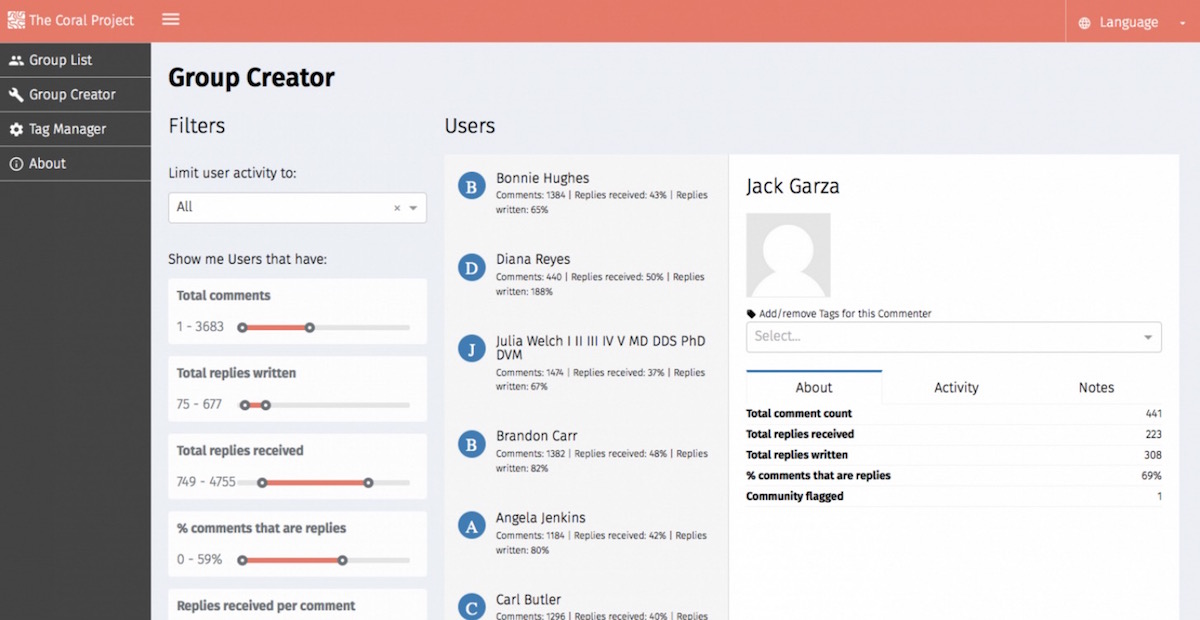On Monday at SXSW, The Coral Project provided more details about the first product it’s developing to help news organizations better manage comments.

The Coral Project is a joint effort between The New York Times, The Washington Post, the Mozilla Foundation, and The Knight Foundation, and in a blog post, Greg Barber, the Post’s director of digital news products, said the app, called Trust, will “help publishers build and enliven communities around their journalism:”
The Trust app aims to scale the moderation of user-generated contributions by focusing on the user’s history of contributions in addition to moderating individual contributions themselves.
Through Trust, publishers can categorize users in two ways: persistent tags (examples: this user is a medical doctor; this user’s comments have been featured in an article) and dynamic lists — groups that allow publishers to tee up groups of users based on their contribution history.
For example, if a publisher wanted to find new users in the politics section who prompted conversation without violating the site’s discussion policy, they could use this recipe: Total comments = less than 10; total replies received = more than 5; comments deleted = 0.
The Trust app would serve up users who fit that description — and it could continue to do so dynamically without further action from the publisher.
Trust is the first of a few products that The Coral Project plans to release in beta this year, and the app — along with everything else The Coral Project builds — will be open source.
The product will be tested at the Times, the Post, and elsewhere before it is released publicly. Last fall, Andrew Losowsky, who is leading The Coral Project, told me he hopes to work with four to six publishers to test the tool.Losowsky said the project wants to make all of its products versatile enough that any outlet will be able to use them and adapt them to its own needs.
“In conversation with the publishers, we’ll get a sense of what different metrics will make sense for these different ideas of trust and reputation and then give the publishers the tools to shift those metrics in ways that make sense for them and get analytics out of that,” he said.
The Coral Project was first announced in 2014 and is funded via a $3.89 million Knight Foundation grant that runs through June 2017. (Knight is also a funder of Nieman Lab.) Though the project is just now releasing its first product, it has spent more than a year seeking input from everyone from news organizations to commenters themselves. In his post, Barber said they’ve conducted more than 300 interviews with individuals from about 150 outlets in 30 countries.In addition, the project has created tools such as a card game, user personas, and an online forum to help spur discussion around how to build communities around the news. Last month, it also co-hosted a day-long conference at the MIT Media Lab to discuss these issues.
Leave a comment